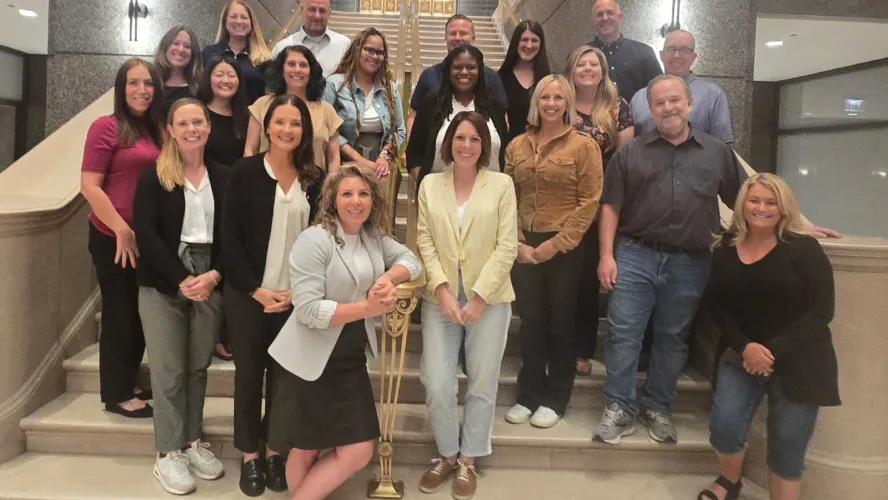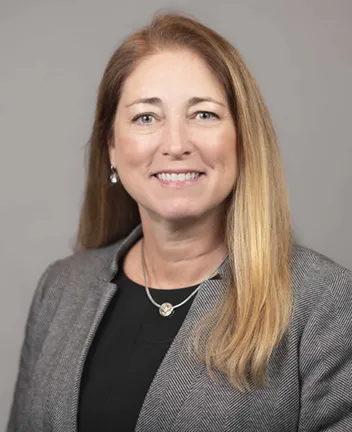Promoting state court behavioral health staffing & collaboration for improved response

NCSC convened state court behavioral health administrators in Chicago June 18 to 20 to collaborate, share experiences, and discuss how to collaboratively work to advance court behavioral health understanding and responses.
Background
In 2022, the Conference of Chief Justices and Conference of State Court Administrators formally called on all state and local courts to lead and promote systemic change to improve the response to individuals with serious mental illness. Supporting the findings and recommendations from the National Judicial Task Force to Examine State Courts' Response to Mental Illness, CCJ/COSCA encouraged courts to create and support a state-level, inter-branch mental health task force and encourage and support local judges and courts in the creation of local or regional mental health task forces; and to consider appointing a behavioral health director/administrator and a team within the Administrative Office of the Courts to develop and implement improved court responses for court-involved individuals with serious mental illness.
Today, 20 states have state court behavioral health administrators (SCBHA) embedded within their administrative offices to provide leadership to examine and improve state courts' response to mental health and substance use disorders.
Learn more about the importance of state-level behavioral health leadership in this article adapted from "Why a State Court Behavioral Health Court Administrator?" appearing in the June 2025 issue of the Court Leadership Brief.
Leading consistency & coordination
State leaders need to model and project collaboration. Local entities need to see and believe that change is expected throughout the system. Having a single point of contact at the state courts promotes consistent communication and coordination and increases the courts' capacity to more appropriately lead efforts to improve system responses.
Ways courts are benefitting from a state-level behavioral health administrator/team, include:
- Leads collaborative state-level court and behavioral health efforts and promotes local-level initiatives.
- Analyzes, develops, recommends, and implements court and behavioral health related proposals, rules, or policies.
- Provides training and technical assistance.
- Serves as subject-matter experts on state court committees, commissions, and task forces.
- Drafts and manages local, state, and federal grant applications and awards.
- Maintains information on current trends and research in emerging and best practices.
- Disseminates subject-matter content and resources to courts and court professionals.
- Spearheads Administrative Office of the Courts "wellness" initiatives.
Promoting state-level, cross-sector collaboration
Court leaders are responsible for inspiring public trust and confidence. Courts care deeply about their communities and the people who make up those communities. It is often the wellbeing of those communities and people that inspire the passion to lead and facilitate change for the common good. As courts seek to improve court and community response to mental health and substance use disorders, leaders draw motivation, strengthen partnerships, and achieve goals through relationships and engaging resources.
Communities are benefiting from state-level partnerships through:
- Systemwide coordination between the justice system and treatment sector stakeholders.
- Coordination and hosting of local Sequential Intercept Mapping workshops and resource identification projects.
- Stronger communication between community behavioral health agencies and courts.
- Identification of and participation in existing state-level workgroups that are already working to improve the intersection of behavioral health and justice.
- Increased collaboration from facilitating diversion programs and fostering smooth transitions between jail, court, and treatment systems.
- Engagement from leaders of state and local agencies and organizations.
- Participation on behavioral health planning councils and federal block grant committees.
- Stronger intergovernmental and multibranch relationships.
- Expanded advocacy for increased resources and access to services.
Additional reading
Since establishing a behavioral health administrator within the Illinois
state court, we have seen tangible improvements in communication, collaboration, systems knowledge, and shared responsibility for overall improvements.
Sharon Coleman
Deputy Director of Forensic & Justice Services, Illinois Department of Human Services
Expand your state-level behavioral health leadership
Ready to build or expand your state's behavioral health efforts? Let us help you navigate your journey.
Our expert
Explore more
Behavioral health
Explore insights on managing behavioral health issues in courts, with guidance from experienced experts specializing in case management, caseflow, and rural justice at NCSC.
The role of state courts in furthering access to justice
Our work is critical in assisting courts and their partners to be more community-connected, user-friendly, accessible, and welcoming for all people facing legal issues. Access to justice requires creativity, collaboration, and connection, and we work alongside courts in pursuit of this goal.
Judges' guide to mental health diversion
A resource framework for judges and courts to promote and implement diversion strategies for individuals with behavioral health needs in their communities. I





